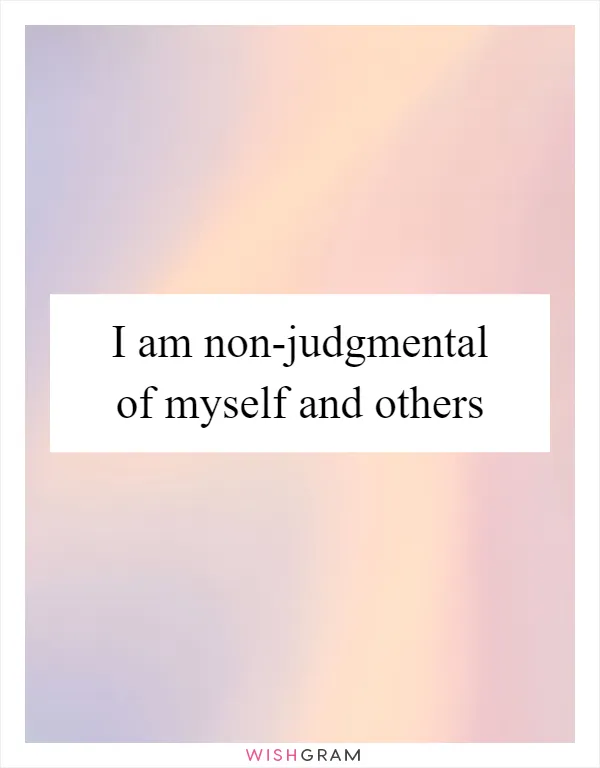I am non-judgmental of myself and others
When you practice being non-judgmental of yourself and others, you are choosing to let go of negative thoughts and beliefs. You are choosing to accept yourself and others for who they are, without criticism or condemnation. This affirmation can help you cultivate a more positive and compassionate mindset, which can lead to greater happiness and fulfillment in life.
When you judge yourself harshly, you create a cycle of negativity that can be difficult to break. You may feel like you're not good enough, or that you're constantly falling short of your own expectations. This can lead to feelings of anxiety, depression, and low self-esteem. By practicing non-judgment, you can break this cycle and start to see yourself in a more positive light.
Similarly, when you judge others, you create a barrier between yourself and them. You may feel like you're better than them, or that they're not worthy of your time or attention. This can lead to feelings of isolation and loneliness, as well as a lack of empathy and understanding. By practicing non-judgment, you can break down these barriers and connect with others on a deeper level.
Of course, practicing non-judgment is easier said than done. It can be difficult to let go of negative thoughts and beliefs, especially if you've been holding onto them for a long time. However, with practice and patience, you can learn to cultivate a more positive and compassionate mindset.
One way to practice non-judgment is to focus on the present moment. When you find yourself judging yourself or others, take a deep breath and bring your attention back to the present. Notice your thoughts and feelings without judgment, and try to let them go. Remember that everyone is doing the best they can with the resources they have, and that includes you.
Another way to practice non-judgment is to cultivate empathy and understanding. Try to put yourself in the other person's shoes, and imagine what it would be like to be in their situation. This can help you see things from their perspective, and can lead to greater compassion and understanding.
